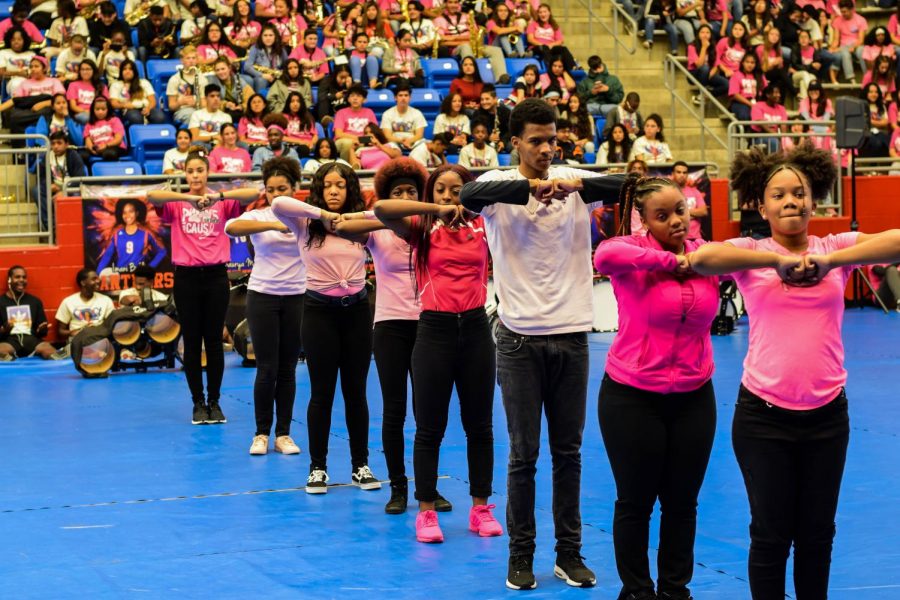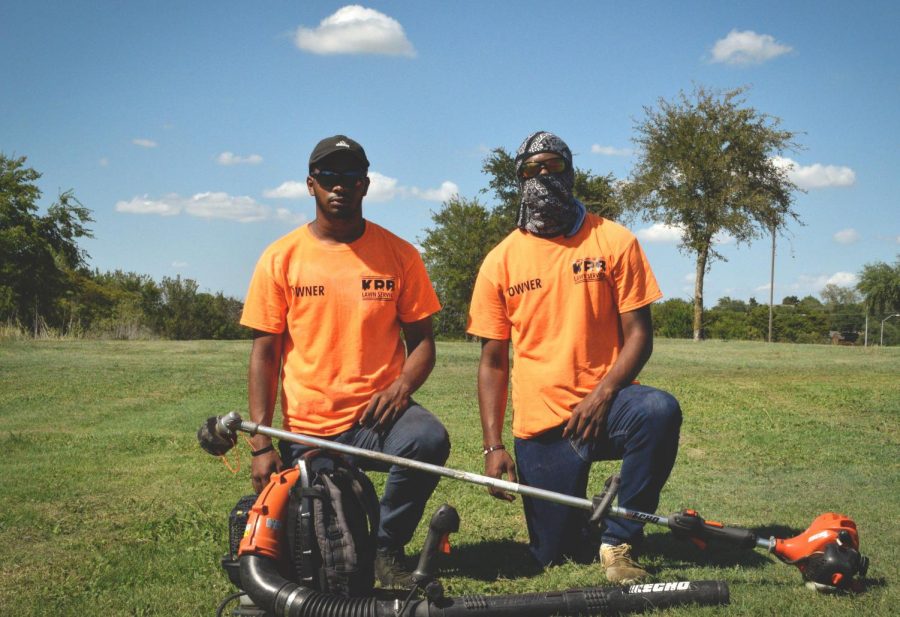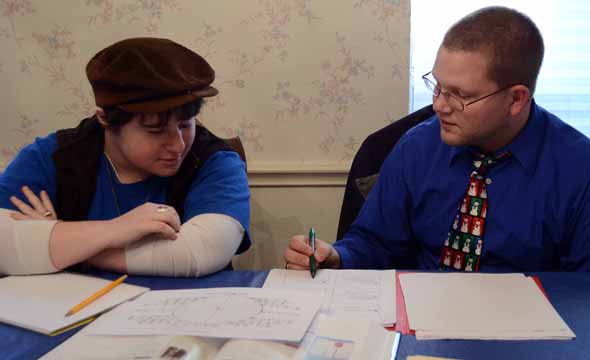*Note the names of the students in this story have been changed in an effort to protect their identity from their bullies.

Cold pavement presses against freshman Jake Duncan’s* cheek. A couple of teeth lay in front of him in a puddle of blood. His tormentors walk away laughing and Duncan* feels relief. Relief that will last until tomorrow, where he will be greeted by his bullies again.
“I feel like I’m nobody, “ Duncan* said.
This torture becomes routine to Duncan*. He tries tells his mom, and he starts feeling more protected, but the bullies seem like they are everywhere.
“My heart starts beating really fast,” Duncan* said. “I keep on wondering in my head what is going to happen.”
Junior Derek Pantherpaw* admits that after being bullied by his fellow teammates he had suicidal thoughts.
“It feels like a nightmare,” Pantherpaw* said. “Bullying leads to destruction.”
According to a 2010 survey, Pantherpaw* and Duncan* are part of the 1 in 7 students across the nation that are victims of bullying each year. In the first national survey on bullying, 30% of students reported being involved in bullying, whether as victims, bullies or both. And the numbers are rising.
“People who were bullied as children are more likely to suffer from depression and low self esteem later in life and bullies themselves are more likely to engage in criminal activity as adults,” Duane Alexander, M.D., director of the National Institute of Child Health and Human Development, said.
Duncanville High School has a zero tolerance policy that is enforced through the administration.
“The bottom line is bullying is a discipline issue,” counselor Tijuana Hudson said. “The bullies need to know there are consequences for it.”
Victims are referred to Hudson by teachers noticing unusual behavior or personality changes. Teachers send Hudson an email or give her a call, so the situation can be dealt with and the student can get help. Hudson admits that each case is different, but in every situation, the bullies are given appropriate punishments. Assistant principals have lists of different behaviors and the consequences corresponding to those misbehaviors. Since the word “bullying” covers a wide variety of abuses, each case is unique with it’s own consequences. Punishments can go as high as getting the police involved.
“I first try to validate their feelings,” Hudson said. “If they are in a situation where they feel like, ‘I’ve told my mom, she’s ignored me’, I feel like the first step for me is to tell them ‘I believe you’. If you feel like it is happening, it is happening.”
Hudson tries to help students gain the inner strength to stand up for themselves and put the bullying to an end.
“I try to equip them with the internal abilities to fight back. And when I say fight back, I don’t mean physically fight back, but what things we can do to get it solved,” Hudson said. “I try to assure them that there is an adult in the building who is listening. Who does care. And who is going to take steps to do something about what is going on.”
Hudson says that victims handle bullying in a variety of ways. While some become more withdrawn, others may start making excuses to their parents about why they shouldn’t go to school or skipping classes. Hudson says that bullying can also lead to depression, depending on the severity and the amount of time the bullying has been happening. She also admits that bullies do not care about their victim’s feelings because the victim is insignificant in their life.
“Everybody has a weakness of some kind. Everybody has feelings, and I feel like if you have gotten to the point that you are going to bully somebody else then there is something going on inside of you,” Hudson said. “I try to get to the core of humanizing the victim to the bully. I tell the bullies ‘They have feelings just like you, or your mom, or your little brother. This is a person that has feelings, and would you want someone doing this to them?’”
There is a peer mediation program available to students at the high school level, but Hudson tries to keep victims from going to peer mediation with their bully to solve the problem.
“We have a peer mediation program, and a lot of the time teachers feel that, ‘Well, I can just send them to peer mediation.’ and I try really hard to make sure that the kids understand I’m not going to put them in that situation,” Hudson said. “If they feel like someone is bullying them, I’m not going to sit them face to face with their bully to tell their bully that they are hurting their feelings. Because 9 times out of 10, if the kid is a real bully they want to hurt your feelings. Peer mediation is not the thing to solve a bullying situation.”
The Turn Around Agenda is offered at the high school and to other students from different areas. The program provides students with the opportunity to confidentially speak with adults about their situation for one hour once a week.
“I present myself as an open person,” director of the Turn Around Agenda Allen Lockhart said. “ I assure students that their names won’t be leaked out and no further conversation will be shared about them.”
Lockhart said that bullying can cause insecurity not only socially, but also behaviorally and academically.
“It makes me very angry,” Lockhart said. “I believe that we can work together as a team talk to the bullies and help them understand the destruction they are causing.”
Lockhart gets parents, administrators and campus security involved in hopes that the victimized student will feel more comfortable and safe with the support from other adults.
“I think each school should have a safe environment where students won’t feel bullied or picked on,” Lockhart said, “and where they can learn effectively in the classroom.”
Duncan* has found strength and reassurance through his mother’s support.
“I feel protected,” Duncan* said. “I feel like she’s the only person that loves me.”
Speaker Tory Gant came to Duncanville to give a speech to the freshman class about bullying. Grant said there becomes a point when lives are threatened and kids commit suicide because of bullying.
“I don’t want to see kids as trouble makers, but I do see kids having trouble making it,” Grant said. “Whatever happened around you, whatever happened in front of you, whatever happened to you, you have the right to keep it from happening in you.”







